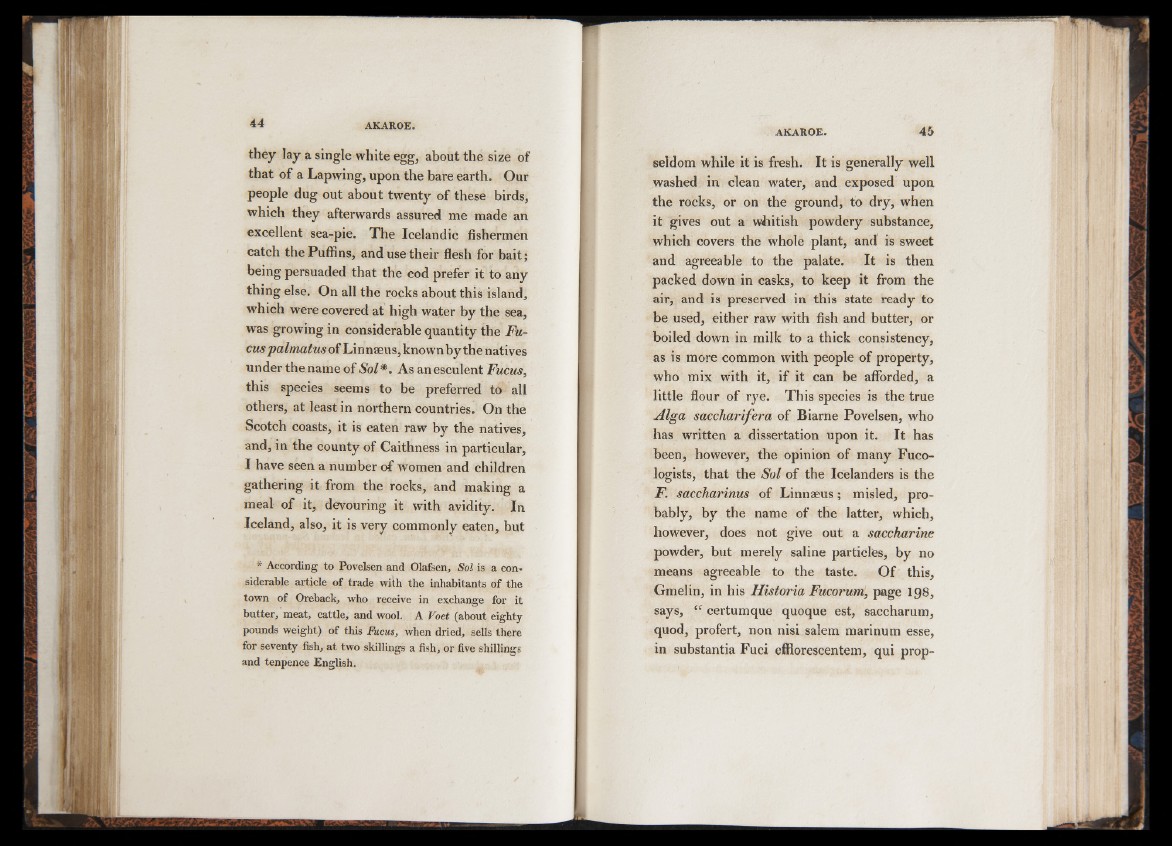
they lay a single white egg, about the size of
that of a Lapwing, upon the bare earth. Our
people dug out about twenty of these birds,
which they afterwards assured me made an
excellent sea-pie. The Icelandic fishermen
catch the Puffins, and use their flesh for bait;
being persuaded that the cod prefer it to any
thing else. On all the rocks about this island,
which were covered at high water by the sea,
was growing in considerable quantity the Fucus
palmatusoi Linnaeus, known by the natives
under the name of Sol*. As an esculent Fucus,
this species seems to be preferred to all
others, at least in northern countries. On the
Scotch coasts, it is eaten raw by the natives,
and, in the county of Caithness in particular,
I have seen a number of women and children
gathering it from the rocks, and making a
meal of it, devouring it with avidity. In
Iceland, also, it is very commonly eaten, but
* According to Povelsen and Olafsen, Sol is a con»
siderable article of trade with the inhabitants of the
town of Oreback, who receive in exchange for it
butterj meat, cattle, and wool. A Voet (about eighty
pounds weight) of this Fucus, when dried, sells there
for seventy fish, at two skillings a fish, or five shillings
and tenpence English.
seldom while it is fresh. It is generally well
washed in clean water, and exposed upon
the rocks, or on the ground, to dry, when
it gives out a whitish powdery substance,
which covers the whole plant, and is sweet
and agreeable to the palate. It is then
packed down in casks, to keep it from the
air, and is preserved in this state ready to
be used, either raw with fish and butter, or
boiled down in milk to a thick consistency,
as is more common with people of property,
who mix with it, if it can be afforded, a
little flour of rye. This species is the true
Alga saccharifera of Biarne Povelsen, who
has written a dissertation upon it. It has
been, however, the opinion of many Fuco-
logists, that the Sol of the Icelanders is the
F. saccharinus of Linnaeus; misled, probably,
by the name of tfie latter, which,
however, does not give out a saccharine
powder, but merely saline particles, by no
means agreeable to the taste. Of this,
Gmelin, in his Historia Fucorum, page 198,
says, “ certumque quoque est, saccharum,
quod, profert, non nisi salem marinum esse,
in substantia Fuci efflorescentem, qui prop